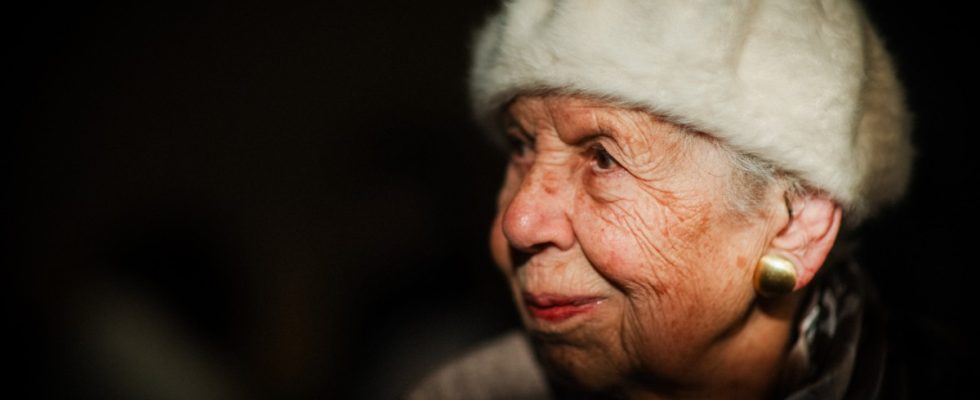Hanna Zimmermann sits quietly on the podium in the Evangelical City Academy. An attractive old lady wearing a beret, silk scarf, white blouse and beige cardigan. She will talk about hell for an hour and a half this Sunday afternoon, one day after Holocaust Remembrance Day on January 27th. She experienced it as a young woman, deprived of her home, her youth and family by the Nazis. She will struggle for words when the memories hurt her too much, kneading her hands. There is a lot that still causes her pain to this day when she thinks about her time in the Lodz ghetto and the deportation to the camps to Auschwitz, Bergen-Belsen and Salzwedel. But she exposes herself to these pains of memory in order to warn and admonish.
“Never again should we allow crimes like the ones you experienced,” says Deacon Matthias Peterhoff, director of studies at the Evangelical City Academy, in greeting, looking at Zimmermann. Since 2008, the liberal Jewish community Beth Shalom has usually hosted contemporary witness evenings in the Jewish Museum. As an exception, you are a guest at the city academy. Hanna Zimmermann politely thanks the 150 listeners for their interest in “this sad hour”. She is one of the few survivors who can still tell what people can do to other people. She will be 100 years old in November.
On January 27, 1945, the Auschwitz concentration camp was liberated. At that time, Hanna Zimmermann was already in Salzwedel. Andreas Heusler from the Munich City Archives sits at her side. The two already know each other from other events. But Heusler emphasizes: “Never before has our free-democratic basic order been in so much danger.” History can never be predicted, but people can influence the course of history. The historian is keen to point out how important it is to convey what the well-intentioned words “never again” ultimately refer to.
The children’s suffering was worse than homesickness and hunger
Hanna Zimmermann was born in Aussig in 1924. German was her native language there, but she had to move to Prague with her family. In November 1941 she and her parents were deported to the Lodz ghetto. Zimmermann describes the train ride there as “terrible.” She experienced her first arbitrary shooting; it was her train neighbor. The sight of corpses soon became part of her everyday life, she says. Hanna Zimmermann was in Lodz for three years. There she was forced to work in the textile factories. Uniforms and shoes for the Wehrmacht were made here. It was very difficult work, Zimmermann emphasizes again and again. Ten hours standing, in cold and heat. There were neither protective window panes nor heating in the buildings.
To this day, Zimmermann feels the suffering of the children there is even worse than her homesickness and her own hunger. They had to hide in the cellars, which still torments them to this day. “Nobody can imagine what these children went through,” says Zimmermann. “They had never really lived before. They didn’t know why they were there in the first place.” But she knew it herself: because she was Jewish. Just because.
Hanna Zimmermann is asked where she got the strength to survive. “For my mother,” she says. She escaped hell with her mother and sister. But the decades that followed were “a steep, rocky road.” In the end, Hanna Zimmermann doesn’t ask for herself: “Think of all the innocent souls. It must remain a truth forever.”

